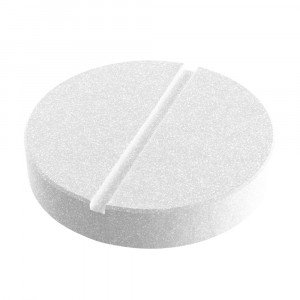 Welcome
Welcome
“May all be happy, may all be healed, may all be at peace and may no one ever suffer."
Medimet Pharmaceuticals Ltd.
Med Cal 500mg

Generic for Diseases
- Periodontitis (Pyrrhoea)
- Impotency
- Dandruff
- Preeclampsia
- Pregnancy Abodominal Pain
- Hyperparathyroidism
- Hyperthyroidism (Overactive Thyroid)
- Sciatica
- Calcium deficiency
- Heartburn
- Hyperphosphataemia
- Hypocalcemia
- Hypophosphataemia
- Increased calcium demand in pregnancy & lactation
- Indigestion
- Non ulcer dyspepsia
- Pseudohypoparathyroidism
- Stomach upset
Calcium carbonate reacts with gastric acid to produce a salt and water. For calcium carbonate the postulated chemical reaction is: CaCO3+2HCl = CaCl2+H2O+CO2. Two grams of calcium carbonate will readily bring 100 ml of hydrochloric acid to a pH above 6. The increase in gastric pH diminishes the activity of pepsin in the gastric secretion. Up to 30% of the oral calcium load may be absorbed.
250 mg or 500 mg tablet: This is used for the treatment or prevention of calcium depletion in patients in whom dietary measures are inadequate. Conditions that may be associated with calcium deficiency include hypoparathyroidism, achlorhydria, chronic diarrhea, vitamin D deficiency, steatorrhea, sprue, pregnancy and lactation, menopause, pancreatitis, renal failure, alkalosis, and hyperphosphataemia. Calcium Carbonate is being used increasingly often to treat hyperphosphataemia in chronic renal failure as well as those on continuous ambulatory peritoneal dialysis (CAPD) and haemodialysis. Many patients are unable to tolerate sufficient doses for complete phosphate control and require additional measures such as stringent dietary phosphate restriction or relatively small doses of aluminium hydroxide. Calcium Carbonate containing preparations can provide short-term relief of dyspeptic systems but are no longer recommended for long-term treatment of peptic ulceration.
1000 mg tablet: This is indicated for the management of conditions associated with hyperidity and for fast relief of acid indigestion, heartburn, sour stomach and upset stomach.
250 mg or 500 mg tablet: Calcium Carbonate is always used orally and when used as an antacid the recommended doses for adults are equivalent to 540-2000 mg Calcium Carbonate per day, doses for children being half of those for adults. As a dietary supplement, such as for the prevention of osteoporosis, 1250-3750 mg Calcium Carbonate (500-1500 mg calcium) daily is recommended in general, but again this will need to be tailored to the individual patient depending on any specific disease such as Calcium deficiency, malabsorption or parathyroid function. In pregnancy and lactation the recommended daily dose of calcium is 1200-1500 mg. In chronic renal failure the doses used vary from 2.5-9.0 gm Calcium Carbonate per day and need to be adjusted according to the individual patient. To maximize effective phosphate binding in this context the Calcium Carbonate should be given with meals.
1000 mg tablet: 2000-3000 mg tablet when symptoms occur; may be repeated hourly if needed or as directed by the physician.
- Hypercalcaemia and hyperparathyroidism
- Hypercalciuria and nephrolithiasis
- Zollinger-Ellison syndrome
- Concomitant digoxin therapy (requires careful monitoring of serum calcium level)
When hypercalcaemia occurs, discontinuation of the drug is usually sufficient to return serum calcium concentrations to normal. Calcium salts should be used cautiously in patients with sarcoidosis, renal or cardiac disease, and in patients receiving cardiac glycosides.
Orally administered Calcium Carbonate may be irritating to the GI tract. It may also cause constipation. Hypercalcaemia is rarely produced by administration of calcium alone, but may occur when large doses are given to patients with chronic renal failure.
Pregnancy & Lactation
Calcium containing drugs have been widely used in pregnancy by way of oral calcium supplementation or antacid therapy. Calcium Carbonate can be used in lactating women too.
Use in Special Populations
Use in children: Calcium carbonate has been extensively studied in children and infants with chronic renal failure and is both safe and effective.
Use in elderly: In case of elderly patients with renal failure when calcium carbonate is taken constipation may be troublesome one for this group. For this reason, monitoring of serum calcium and phosphate is of course indicated for elderly patients.
Med Cal 500mg and more Available Brands
Trax 1gm / vial
Ampimet 250mg
Diapizi 5mg
Chlorpheniramine 4mg
Ceporal 125mg / 5m...
Emycin 125mg / 5m...
Demax 0.5mg
Valepi 200mg
...
To be happy, beautiful, healthy, wealthy, hale and long-lived stay with DM3S.